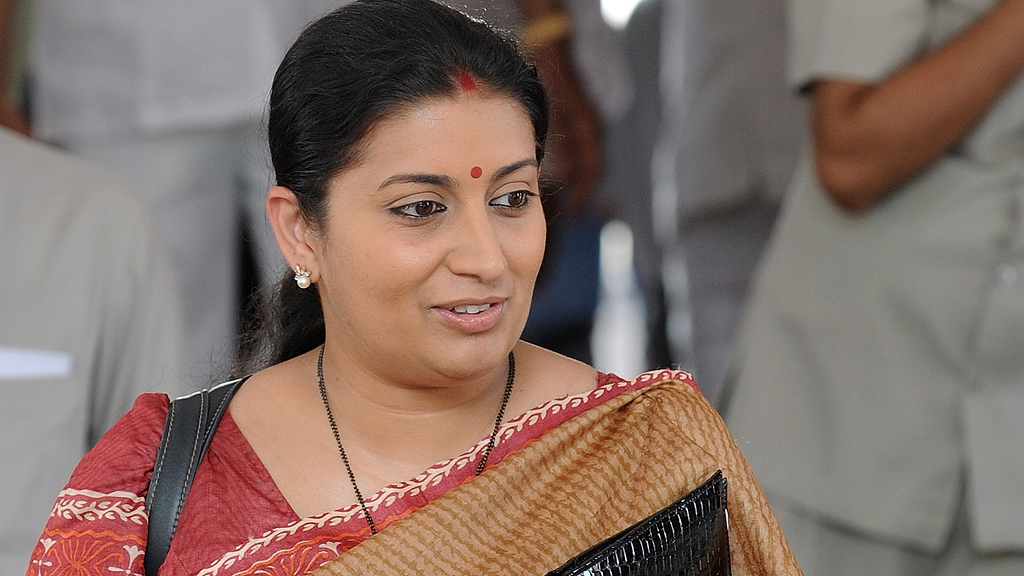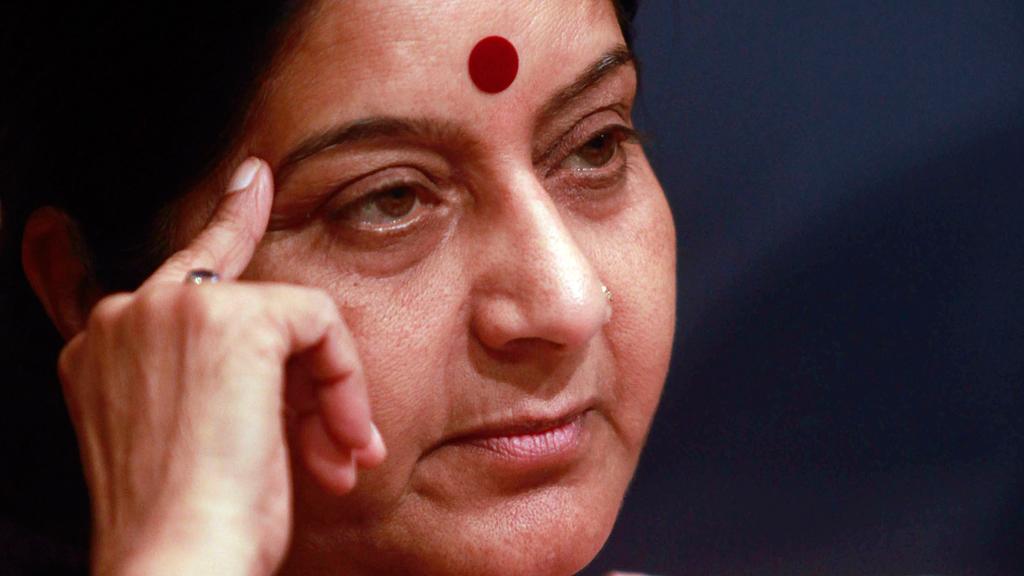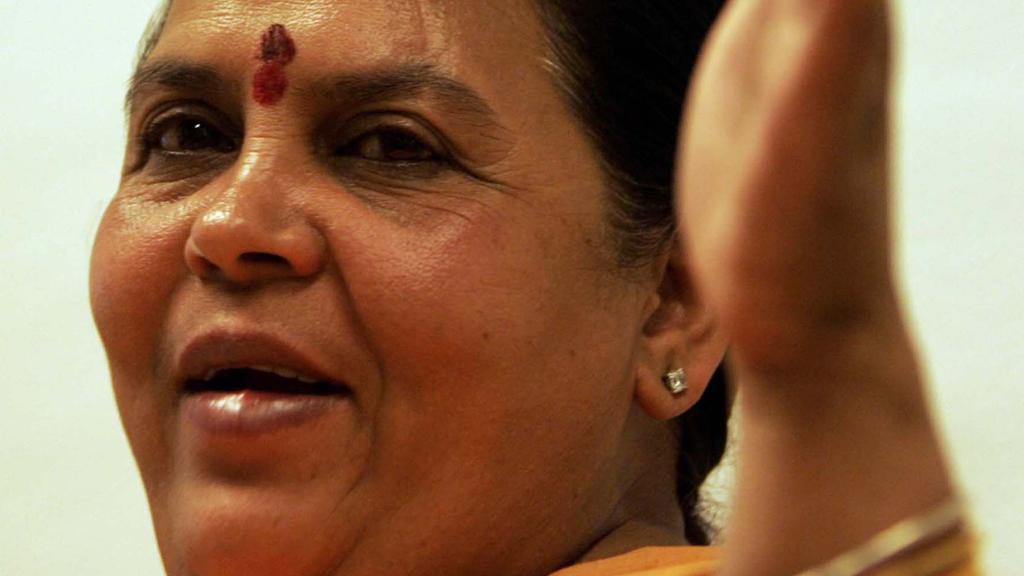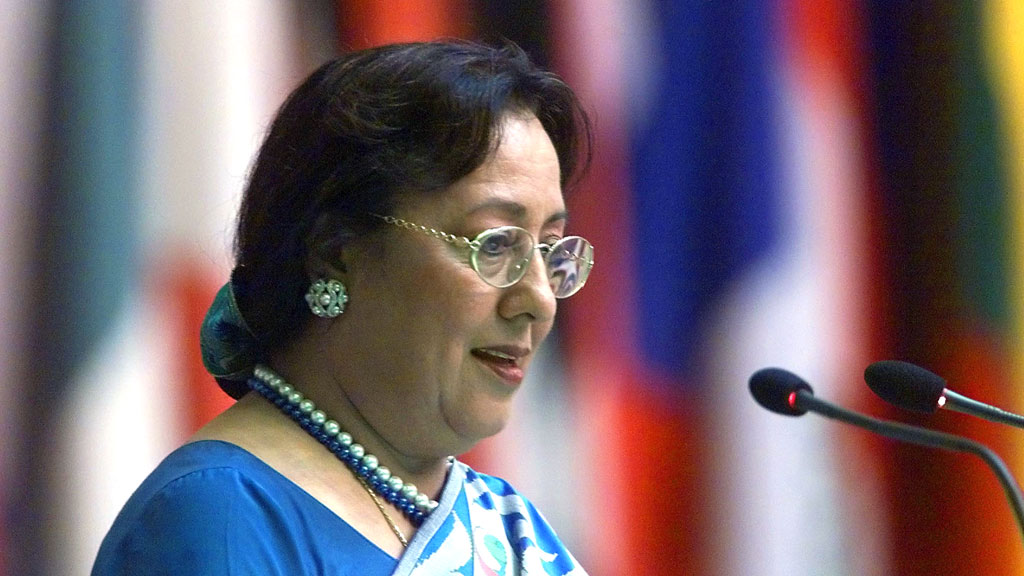Will the women in India’s parliament make a difference?
On May 26, 2014, Irani, one-time model and popular television actress, took oath as a minister in Prime Minister Narendra Modi’s cabinet. Her spectacular rise until now indicates the impact she has had within the Bharatiya Janata Party (BJP). Irani is among the 61 women members out of a total of 543 Members of Parliament who represent their constituencies in India’s Lower House of Parliament, the Lok Sabha. Women comprise just 11 percent of the House, a dismal figure when compared to many countries, including India’s South Asian neighbours. Pakistan has 67 women in a House of 323 members,
Bangladesh has 67 members out of a total of 347 members, while Nepal has a total of 172 women in a House of 575 members. The rest of the world also has interesting examples: Rwanda has 63.8 percent of women in its parliament, South Africa has 44.8, Germany has 36.5 percent women in its Bundestag.
The good news is that women make up nearly 25 percent of the Modi government. This is the first time India has seven women ministers, six of them handling important cabinet posts. Considering that the BJP has the image of being a patriarchal party, the move has come as a welcome change. While there were many women ministers in the United Progressive Alliance led by the Congress, none of them headed ministries and, therefore, none among them attended the all-powerful powerful Cabinet Committee on Security (CCS) meetings.
As the new foreign minister, Sushma Swaraj has got one of the four most important charges in the government. Sushma Swaraj is a well known face in Indian politics. She was the minister for health in the former BJP government headed by Atal Bihari Vajpayee and has been the Leader of the Opposition in the Lower House in the earlier government. A feisty and articulate politician, she is a political heavyweight.
Estranged Gandhi daughter-in-law, Maneka Gandhi, is the minister for Women and Child Development. She has been with the BJP for over two decades and was welcomed into the party largely because of the Gandhi name she carries and her frosty relations with the family. Nirmala Sitharaman, the national spokesperson of the BJP has done an excellent job in projecting her party in television debates and briefings over the last two years. She is a relatively new face in Delhi politics, but has been admired for her efficiency.
At 75, Najma Heptullah is the oldest woman cabinet minister and the only Muslim. A long time Congress Parliamentarian, she switched loyalties to the BJP and has been rewarded with the full fledged ministry of Minority Affairs. The other women cabinet ministers are Uma Bharati and Harsimrat Kaur. The former is known to be temperamental and has been given charge of water resources, river development and the new responsibility of Ganga Rejuvenation. The latter, the daughter-in-law of a powerful political family from Punjab, will be in charge of food processing.
So what does all this signify for Indian women? Ranjana Kumari, Director of Centre for Social Research and Member of the National Mission for Empowerment of Women, sees it as a “positive sign”. But she adds, “This is just a first step. Unless the Women’s Reservation Bill is passed, women will not be in a position to improve their lot.” The Bill, which has been gathering dust since 1997, allows for reserving 33 percent seats in Parliament and the state assemblies for women.
Ranjana Kumari points out the experience of Panchayati Raj, the local self-government project in India, “Some work and some don’t, much depends on the individual. But generally what is noticed is that while initially they may not make much of a difference, the same person is far better the next time around because she is more familiar with the system. This is true everywhere and for both genders. Even in Parliament, how many first-time members speak? Take the example of Member of Parliament Dimple Yadav, the wife of the chief minister of Uttar Pradesh. She has yet to speak a single sentence in the House.”
Among the 61 women MPs, 22 hold post graduate degrees, 21 are graduates, six have passed middle school and all them have taken their school leaving examinations. One among them, Bollywood actress Hema Malini has an honorary doctorate, possibly given by some university for her acting. Uma Soren, 28, from West Bengal’s Jhargam constituency is a doctor. She
won by 3.50 lakh votes, the largest margin among women contestants. When her constituency was in the grip of Maoist violence a few years ago, this young Santhal doctor had led a team of medical personnel deep into the forests to treat the injured.
It may be premature to assess the impact of this new crop, says Kirti Singh, lawyer and long time women’s activist, “It’s too early to judge, but it will certainly help in the long term. The more women take up political responsibilities, the broader will be parliamentary representation. On issues that affect women’s security, health and child care, hopefully, women across party lines will join forces.”
Madhu Kishwar, Senior Fellow at the Centre for the Study of Developing Societies (CSDS) is less optimistic. “Women who work get a good deal from the party, but where do you find those who work? They are very few,” she says. She believes that women should prepare themselves for their political roles more assiduously, “They need to get their own political act together – not just hang around political parties but actually work.” She also believes that unlike in Europe, where women help build up opportunities for each other, in India most women in politics are at each other’s throats. Says Kishwar with brutal frankness, “Each of them is on the lookout for a male patron. They hate their female colleagues and would be happy kicking them down within their own parties.”
Will the new women parliamentarians prove Kishwar wrong? Only the future will reveal.
Author: Seema Guha
This is a feature from Womens Features Service.










